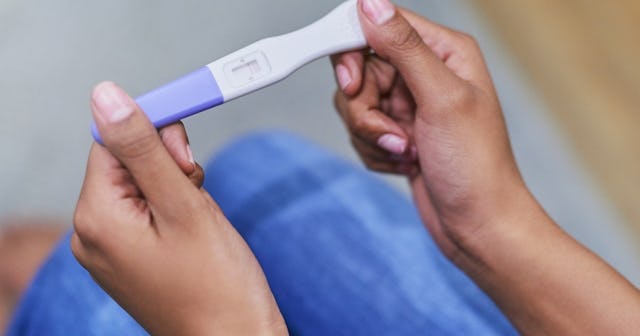Early Pregnancy Symptoms: The Very First Signs You Might Be Pregnant

Could you be pregnant? If you’re trying to conceive, you’re likely on high alert for any telling changes in your body. Ultimately, the proof is in a pregnancy test. But what happens first? Be on the lookout for these early signs of pregnancy, which may tip you off that you’ve got a beautiful little bun in the oven. Just remember, though — all bodies are different, and early pregnancy symptoms differ from woman to woman and even pregnancy to pregnancy. You may experience some of these symptoms early in your pregnancy, or you may not experience them at all (in which case, jealous).
Ultimately if you find out you are pregnant, you can pinpoint the expected date of your baby’s arrival and your exact week of pregnancy with a due date calculator.
What are a few classic early signs of pregnancy?
Missed or delayed period: As far as first signs you might be pregnant go, this is the biggie, right? In a poll conducted by the American Pregnancy Association, 29 percent of women surveyed indicated a missed period was their first pregnancy symptom. So, if you miss your menstrual cycle or it seems conspicuously late, it might be time to buy a test or schedule a visit with your OB-GYN.
Nausea: Remember that survey? Well, the second most reported early pregnancy symptom (cited by 25 percent of women polled) was nausea. It typically shows up between two to eight weeks after conception, and it can occur with or without vomiting. Pregnancy nausea is commonly referred to as “morning sickness,” which is obviously laughable to those of us who essentially turned puking at all hours into a professional sport during pregnancy.
Tender, swollen breasts: Tack tender, swollen breasts to the top three symptoms most frequently cited by women during early pregnancy. Because breast changes can start as early as one or two weeks after conception, any unexpected fullness or soreness could truly be your first clue.
Fatigue: There should be a special term to describe the depths of fatigue one can feel plunged into during pregnancy, and that extreme tiredness can kick in as early as the first week after conception.
Slight bleeding or cramping: Per the American Pregnancy Association, only three percent of women polled pointed to spotting or cramping — known as implantation bleeding — as their first sign of pregnancy. However, since this bleeding can occur when the embryo implants to the uterine lining between six and 12 days after conception, it’s often discussed among the earliest possible pregnancy symptoms.
What are some other early pregnancy symptoms?
Again, you may experience all of the symptoms outlined above or you may not experience any. In the immortal words of John Mayer, your body is a wonderland — it is capable of a glorious array of unique pregnancy quirks. Those may also include:
- Increased urination
- Food aversions or cravings
- Headaches
- Constipation
- Moodiness
- Bloating
- Nasal congestion
- Faintness and dizziness
- Raised basal body temperature
- Just ‘feeling’ pregnant
What causes early pregnancy symptoms?
Different symptoms can have different causes, but most of them basically boil down to the fact your body is being flooded with hormones. Hormonal changes can cause you to feel sick, weepy, tired, sore, and more. Also, the increase of blood in your body can contribute symptoms like frequent urination and feeling, ahem, frisky.
How can you tell if you’re really pregnant?
Here’s the thing: Most pregnancy symptoms could also be caused by something else. A missed or late period? You may have a hormone imbalance, be excessively stressed, have recently gained or lost a considerable amount of weight, or even just started a new exercise regimen. Nausea? Could be the stomach flu. Sore boobs? Your body may be telling you your period is on the way.
As frustrating as it may seem, the only way to be certain you are pregnant is to take a pregnancy test. If you’ve been trying to conceive, think you may be, and need a little guidance, you can call the American Pregnancy Association’s pregnancy helpline at 1-800-672-2296. If you have an OB-GYN, schedule an appointment at your earliest convenience.
This article was originally published on